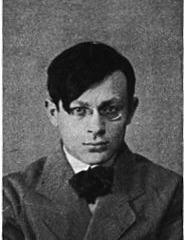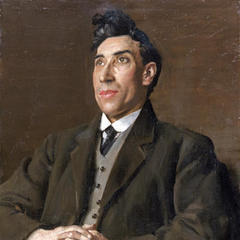John Milton Quotes - Page 12

John Bell, Joseph Addison, John Banks, Michael Arne, John Brown (1796). “British Theatre: Caractacus”
Let not England forget her precedence of teaching nations how to live.
'The Doctrine and Discipline of Divorce' (1643) 'To the Parliament of England'
1665 Paradise Lost (published1667), bk.3, l.102.
'Paradise Lost' (1667) bk. 2, l. 879
John Milton, Elijah Fenton (1831). “Paradise Lost : a Poem in Twelve Books”, p.96
1665 God speaking of Satan. Paradise Lost (published1667), bk.3, l.96-9.
1665 Adam's lament. Paradise Lost (published1667), bk.10, l.741-2.
John Milton, James Prendeville (1850). “Milton's Paradise Lost: With Copious Notes, Explanatory and Critical, Partly Selected from Addison, Bentley, Bowle ... [et Al.] and Partly Original”, p.246
What honour that, But tedious waste of time, to sit and hear So many hollow compliments and lies.
John Milton, Henry John Todd (1852). “The Poetical Works of John Milton: With Notes of Various Authors; and with Some Account of the Life and Writings of Milton, Derived Principally from Original Documents in Her Majesty's State-paper Office”, p.152
John Locke, John Milton (1830). “Some thoughts concerning education”, p.277
John Milton (1861). “The first book of Milton's Paradise lost: with a prose tr. and notes, by J. Hunter”, p.26
Justice divine Mends not her slowest pace for prayers or cries.
John Milton (2013). “Paradise Lost Simplified!: Includes Modern Translation, Study Guide, Historical Context, Biography, and Character Index”, p.452, BookCaps Study Guides
Among unequals what society Can sort, what harmony, or true delight?
1665 Adam. Paradise Lost (published1667), bk.8, l.383-4.
Who shall silence all the airs and madrigals that whisper softness in chambers?
'Areopagitica' (1644) p. 16
John Milton, James Augustus St. John (1871). “The Prose Works of John Milton ...: With a Preface, Preliminary Remarks, and Notes”, p.387
John Milton, John Hunter (1864). “Milton's Comus, L'allegro, and Il Penseroso: With Numerous Illustrative Notes &c”, p.33
The teachers of our law, and to propose What might improve my knowledge or their own.
John Milton (1824). “The Poetical Works of John Milton: With Notes of Various Authors, Principally from the Edition of Thomas Newton, Charles Dunster, and Thomas Warton, to which is Prefixed, Newton's Life of Milton”, p.27
John Milton (1859). “The prose works of John Milton”, p.177
John Milton, John Aikin (1806). “Poetical Works: With a Preface, Biographical and Critical”, p.92
'Paradise Lost' (1667) bk. 2, l. 146
Our torments also may in length of time Become our Elements.
'Paradise Lost' (1667) bk. 2, l. l. 274
John Milton, Henry John Todd (1852). “The Poetical Works of John Milton: With Notes of Various Authors; and with Some Account of the Life and Writings of Milton, Derived Principally from Original Documents in Her Majesty's State-paper Office”, p.164
The bird of Jove, stoop'd from his aery tour, Two birds of gayest plume before him drove.
John Milton, Henry John Todd (1801). “The Poetical Works of John Milton”, p.349






